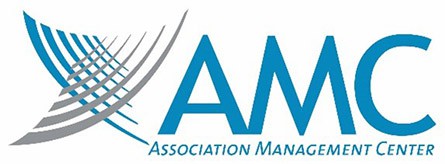How many times have you heard an association executive say that they are having trouble finding volunteers for leadership positions?
The association may have taken the time to make the financial commitment to define the desired competencies of volunteers in the boardroom and on committees and workgroups. And yet, maybe a key demographic or stakeholder group is still not volunteering, submitting applications for leadership positions, or accepting appointments.
There is one more step, however, that could improve engagement.
Assess and Communicate Role Expectations
Have you taken the time to review your expectations for volunteers—both financial and time—to see if they can meet them? Are volunteer expectations aligned with key stakeholder groups that hold the competencies the association needs to push strategy forward? This is not just for board positions. Alignment should happen at all volunteer leadership levels including committees, workgroups, and time-limited opportunities.
For example, you may be looking for volunteers who are earlier in their career and have a requirement that they meet in person 4 times a year. Are you reimbursing these volunteers for their travel? Do you know if these individuals receive paid time off (PTO) from their employers? Have the support of upper management? Student loans to pay off?
Expressing the length of a long-term commitment may help entice the right applicants to apply. Do you require committee chairs to serve 5 or more years on a committee before they can become chair? Do volunteers know they can commit to 5 years of service before they can lead?
You may also want to consider the times you hold your virtual calls. Are they at 7 pm in the evening? Could this be dinnertime for someone who is taking care of aging parents, children, or has chronic fatigue syndrome? How frequently are you meeting at night and how much notice do volunteers have? Do you have an annual calendar of virtual calls and in-person meetings that you stick to?
Create a Framework Where Volunteers Can Thrive
Now, I understand that some people will say that you can never plan for every extenuating circumstance someone has in their life. True or not, we need to do the work to acknowledge the realities of our volunteers’ lives.
How do we do this? Here are a few ideas to consider:
- Review volunteer and leader expectations at all levels: board, committees, workgroups. Can you move in-person meetings to virtual or can you accommodate a hybrid experience?
- Survey and talk to past and current volunteers to understand the true expectations of their roles and if they align with the stated expectations. Did they spend more time than they were initially told they would?
- Determine which stakeholder groups that hold the competencies you are seeking are missing from your volunteers. Talk to and survey them. Why aren’t they volunteering? How do the current volunteer expectations align with their lived reality? If they cannot meet the current expectations, what expectations could they meet?
- Keep the conversation with members going as individuals adapt their lives to meet new and competing demands. Use these ongoing conversations to change expectations whenever you can.
And yes, we want committed and competent volunteers. We want competent volunteers who understand the expectations of their roles before they volunteer. We want committed volunteers who show up with their whole selves. Volunteers who are seen and supported.
Will there still be situations where now is not the right time to volunteer for someone? Of course. But if they hold the competencies we seek, don’t let their inability to volunteer now be about a miscommunication over expectations.
This is how we continue to build the leadership pipeline. This is how we align the competencies we seek in our volunteers to the expectations of their lives. This is how we have thriving volunteer leaders who are engaged. It is not the only way, but it is undoubtedly a necessary step to move forward.
Erin Volland, MPA CAE, is a senior consultant who co-leads governance consulting for AMC Consulting Services.
Be the first to know about the latest news and events from AMC. Sign up for our bimonthly emails!

